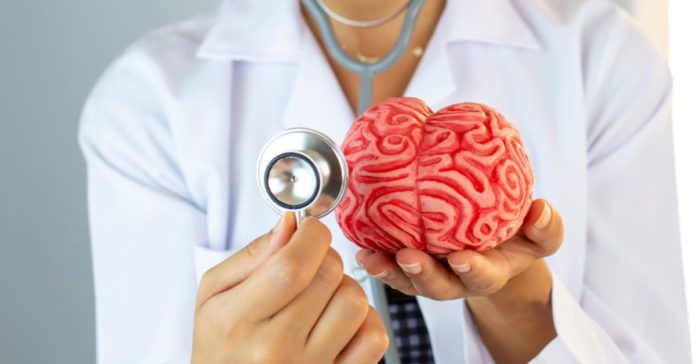What is a Stroke?
Stroke is a cerebrovascular disease that obstructs blood flow to the brain, causing the death of the brain cells. Stroke is one of the leading causes of death and disability in the world.
This medical condition occurs when the oxygen-carrying blood vessel (the arteries) gets blocked due to a clot in the vessels or due to bursting or rupturing and bleeding of blood vessels in the brain. When the blood flow is disturbed, the necessary oxygen is not supplied to the brain’s tissues and hence, brain cells get damaged and eventually die in minutes.
According to a survey, it is found that every year more than 7.95 lakh people are affected by and die of stroke across countries. Stroke is treatable, provided the treatment is given on time.
What are the different types of stroke?
Stroke can be of three types as follows:
- Ischemic Stroke– This is the most common type of stroke in which any blood vessel that carries blood to the brain gets obstructed by a blood clot in the brain or vessel. Eventually, the brain cells die due to a lack of supply in oxygen and essential nutrients. Almost 87% of stroke cases are affected by an ischemic stroke.
- Hemorrhagic Stroke– This is related to bleeding in the brain, which causes the neighbouring brain cells to get damaged and die eventually, resulting in a stroke that can be fatal.
- Transient Ischemic Attack or Mini-Stroke– This is similar to an ischemic stroke, also called a mini-stroke. In this type, a temporary blockage in the blood flow to the brain occurs. This kind of stroke usually lasts for a few minutes or fades away in 24 hours. In rare cases, this stroke may not be even felt by the individual.
Also know about the difference between stroke and heart attack.
What are the symptoms of Stroke?
The symptoms of stroke are often common to both men and women, as stated below:
- Face drooping
- Numbness on one side
- Arm weakness
- Difficulty speaking
- Visual disturbance
- Collapsing or passing out
- Coordination problems, etc.,
Women may report symptoms not often linked to strokes in men. These symptoms can include:
- Pain
- Seizures
- Vomiting or nausea
- Hiccups
- Fainting/loss of consciousness
- General weakness
- Trouble breathing
As these symptoms are unique to women, it becomes difficult to connect them to stroke. This may delay treatment, which can hinder recovery.
What makes women more prone to stroke than men?
The following are the reasons that make women more likely to get stroke than men:
- Pregnancy – Pregnant women have the highest risk of stroke, especially during their third trimester or postpartum. This is due to the high blood pressure experienced during pregnancy. High blood pressure is one of the causes of stroke, and hence, it needs to be treated with medications or must be monitored frequently. Almost 31 out of 100000 women has stroke during their pregnancy, according to a survey.
- Preeclampsia – This is a serious and risky condition that happens during pregnancy and is associated with high blood pressure. This condition doubles the chances of getting a stroke not only during the pregnancy but also at a later stage. Hypertension is the major cause of preeclampsia, and hence, it needs to be taken care of.
- Hormone replacement therapy – This therapy is usually undertaken by women during their menopause to cope with the symptoms like hot flashes, mood swings, heavy sweating, etc,.
- Birth control pills – Although oral contraceptives have become safer now, women with high blood pressure must be cautious . Screening of blood pressure is a must before using such pills. Smoking should also be completely avoided while using birth control pills.
- Atrial fibrillation – Heart rhythm disturbances can lead to blood clots and one such type of rhythm disorderis called an atrial fibrillation. This is a major cause of stroke in older women who are over 75.
- Migraines with aura – this is a condition in which the person experiences severe headache with sensory disturbances called an aura. This is very common in younger women, especially when they smoke or consume birth control pills. This condition is associated with ischemic type of stroke. Smoking has to be completely avoided when women experience migraines with aura, as it would increase the risk of getting a stroke.
How to prevent stroke in women?
Stroke is usually a preventable disease as it is not congenital and with women, when proper medications and advice from doctors are followed, stroke can be avoided. Below are some of the tips to prevent stroke from affecting women.
- Keeping blood pressure under control and closely monitoring BP during or after pregnancy
- Managing cholesterol either with medications or with the help of healthy and nutritious foods and exercise .
- Taking advice from a doctor before consuming oral contraceptives
- Taking advice from a doctor before using aspirin, especially during the second trimester of pregnancy
- Quitting smoking
- Limiting the consumption of alcohol
- Maintaining a heart-healthy lifestyle
- Consuming a balanced diet
- Keeping diabetes in control
- Maintaining the weight to avoid becoming obese
- Exercising on a regular basis
Regular health checks to screen for blood pressure , lipids and sugars might reduce the risk of developing stroke in the future


















